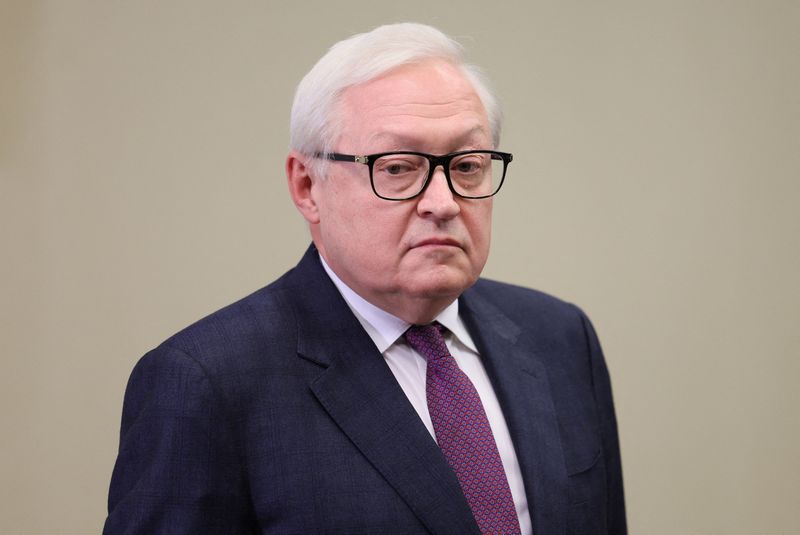
Written by Jay Faulconbridge
MOSCOW (Reuters) – Russia's arms control official warned the incoming Donald Trump administration on Friday against resuming nuclear testing, saying Moscow would keep its options open amid what he described as Washington's “extremely hostile” stance.
The resumption of testing by the world's two largest nuclear powers would herald a perilous new era nearly 80 years since the United States tested its first nuclear bomb at Alamogordo, New Mexico, in July 1945.
Russia, the United States and China are undertaking major modernizations of their nuclear arsenals as Cold War-era arms control treaties between the Soviet Union and the United States collapse.
In an explicit reference to Washington, Deputy Foreign Minister Sergei Ryabkov, who oversees arms control, said Trump had taken a radical stance on the Comprehensive Nuclear Test Ban Treaty during his first term.
Ryabkov was quoted as saying in an interview with the Russian newspaper Kommersant: “The international situation is very difficult at the present time, and American policy in its various aspects is very hostile to us today.”
“So the options available to us to act in a way that serves to ensure security and the potential measures and actions that we need to take – and send politically appropriate signals… do not rule anything out,” he added.
During Trump's first term as president from 2017-2021, his administration debated whether or not to conduct the first U.S. nuclear test since 1992, The Washington Post reported in 2020.
In 2023, President Vladimir Putin officially revoked Russia's ratification of the Comprehensive Nuclear Test Ban Treaty (CTBT), bringing his country into line with the United States.
Russia signed the Comprehensive Nuclear Test Ban Treaty in 1996 and ratified it in 2000. The United States signed the treaty in 1996 but did not ratify it.
Nuclear test?
There are concerns among some arms control experts that the United States is moving toward a return to testing as a way to develop new weapons while simultaneously sending a signal to rivals such as Russia and China.
Russia, which possesses 5,580 warheads, and the United States, which possesses 5,044 nuclear warheads, are the world's two largest nuclear powers by a wide margin, possessing about 88% of the world's nuclear weapons, according to the Federation of American Scientists. China has about 500 warheads.
In the five decades between 1945 and the 1996 Comprehensive Nuclear Test Ban Treaty, more than 2,000 nuclear tests were conducted, 1,032 of them by the United States and 715 of them by the Soviet Union, according to the United Nations.
Post-Soviet Russia did not conduct a nuclear test. The last test conducted by the Soviet Union was in 1990.

Putin said Russia would consider testing a nuclear weapon if the United States did so. Last month, Putin lowered the threshold for a nuclear strike in response to a wide range of conventional attacks, and after Moscow said Ukraine had struck deep inside Russia with US-made ATACMS missiles.
Since the collapse of the Soviet Union in 1991, only a handful of countries have tested nuclear weapons, according to the Arms Control Association: the United States last tested in 1992, China and France in 1996, India and Pakistan in 1998, and North Korea in 2017. .







